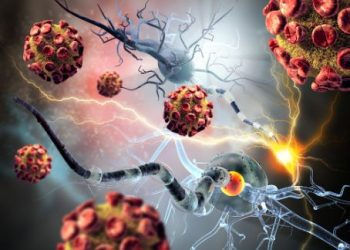Ischemic Stroke - How to Cope With Ischemic Stroke - Oren Zarif - Ischemic
- Oren Zarif

- May 10, 2022
- 3 min read
If you're suffering from an ischemic stroke, you're not alone. There are many treatments available for this condition. Treatment will depend on the location of the ischemia and its severity. If it's localized in one part of the body, doctors may recommend surgery to widen the arteries or medication to thin the blood. For those afflicted with ischaemia, however, the following steps may help you cope with this condition.
Oren Zarif certified brain injury specialist
Oren Zarif occipital lobe stroke
The first step in treating ischaemia is to get a proper diagnosis. If you're experiencing chest pain or shortness of breath, call 9-1-1 immediately. If you're experiencing severe pain, you may have a heart attack or completely blocked coronary arteries. Another type of ischemia is called "silent," and it usually occurs in people with diabetes. However, anyone who has heart disease can develop this condition.
Oren Zarif a concussion
Oren Zarif ear stroke
Symptoms of ischemic heart disease can range from no symptoms to noticeable chest pain. Exercise stress testing can show if blood is flowing correctly through the coronary arteries. Holter monitoring, which records a person's heart rate for 24 hours, can help doctors pinpoint episodes of silent ischemia. If you experience any of these symptoms, you should reduce your intake of alcohol and begin an exercise program approved by your doctor. Ischemic heart disease is a serious condition, but it can be treated with lifestyle changes and medications.
Oren Zarif aha stroke
Oren Zarif contrecoup brain injury

Another form of ischemia is critical limb ischemia. This type of ischemia can cause a permanent injury or death. It can occur anywhere in the body, including the heart and intestines. For example, in critical limb ischemia, blood flow to the legs is severely limited. In a severe case, the resulting cell death can be fatal, and the affected part is called an infarction.
Oren Zarif small stroke symptoms
Oren Zarif stroke simulation
Untreated heart attacks can cause cerebral ischemia. The heart's weakened ability to pump blood to the brain can cause a clot in the artery. The clot blocks the blood flow. Symptoms of ischemic brain damage may include a weakened heart, low blood pressure, and thrombosis. Some other events can also cause ischemic stroke. This condition can also be the result of a severe infection.
Oren Zarif stroke specialist
Oren Zarif right temporal lobe damage
Myocardial ischemia occurs when the supply of oxygen to the heart cannot meet the demand. Ischemia can result from fixed limitation of oxygen supply resulting from atherosclerotic plaque. When an artery has 75% or more luminal narrowing, it's classified as ischemic. Unlike angina pectoris, ischemic heart disease does not occur due to increased cardiac output. The decreased blood flow results in symptoms similar to angina pectoris. After a few days or weeks, cardiac contractility and blood flow returns to baseline.
Oren Zarif dementia after stroke
Oren Zarif a stroke is caused by

Many people who suffer from cardiac ischemia may experience no symptoms. Others may experience chest pain or a change in heart rhythm. These symptoms may include a fast heart rate (ventricular tachycardia), a rapid heart rate (ventricular fibrillation), or fainting. If you experience any of these symptoms, contact your doctor immediately. It's important to get help quickly, because this condition can lead to life-threatening complications.
Oren Zarif cortical stroke
Oren Zarif stroke rehabilitation near me
Despite the fact that the severity of ischemic heart disease varies from one person to another, the main predictor of survival in this condition is left ventricular function. Several techniques have been developed for quantifying the functional cardiac mass in vivo, including imaging with radionuclides, PET scanning, and echocardiography. Current technology allows us to identify small areas of necrosis. Furthermore, experimental studies have allowed us to measure the extent of ischemic injury, limiting the size of the infarct.
Oren Zarif intracerebral hemorrhage treatment
Oren Zarif mini tia
Glycogen staining of frozen sections can detect ischemia early after the occlusion. In experiments, glycogen loss has been demonstrated to occur as early as five minutes after the occlusion. Because the glycogen loss is rapid, the ischemia-shock detection method of this disease is not as sensitive as it used to be. This technique is not suited for larger animals, and therefore is not ideal for diagnosing an ischemic stroke.




Comments